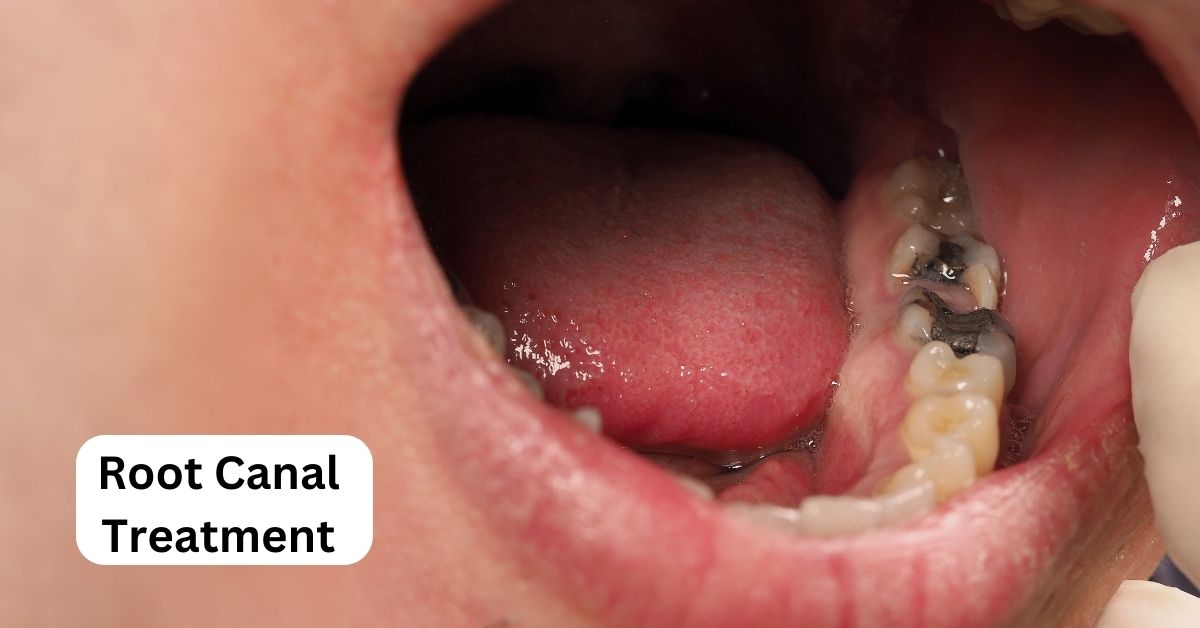What is referred to as root canal treatment?
When the pulp, which contains the tooth’s blood vessels, nerves, and other live connective tissues, becomes infected or inflamed, a procedure called root canal treatment, also called endodontic therapy, must be performed to save the tooth.
Root canal therapy is an alternative to tooth extraction for severely decayed or infected teeth. An endodontist, often known as a root canal expert, is the medical professional who carries it out.
Cavities caused by plaque accumulation, fractured or broken teeth from accidents or trauma, gum disease, and repeated dental treatment to the same tooth are the most prevalent causes of tooth damage or infection. Inflammation, infection, and permanent pulp damage can result from these problems.
They will feel extreme pain at times. If the pulp dies, the discomfort may go away, but it usually comes back as the infection grows. Consult a best tooth hospital in Coimbatore to undergo safe treatment.
When is root canal treatment recommended?
A seriously infected or damaged tooth can be saved with root canal therapy. Decay, excessive dental work, wear and tear, gum disease, broken fillings, and tooth injury are all potential causes of tooth infection.
Bacteria can grow inside a tooth if the dental pulp has been injured. The result can be an abscess, a pus-filled pocket that develops at the root tip due to infection.
If at all feasible, you should try to preserve your own tooth. It’s more natural-feeling and functional than a false tooth when biting and chewing. When you lose a tooth, it can cause a domino effect of oral health issues. In order to successfully replace a missing tooth, more extensive dental work is usually required. In order to save a tooth, root canal therapy is frequently necessary.
The signs that indicate the need of root canal:
Sometimes it’s hard to tell if a tooth is infected. However, there are signs that are noticeable by many. Some of the warnings that you need a root canal are:
Persistent toothache There are a variety of dental issues that can cause toothache. Root canal therapy is a possible solution if you are experiencing severe dental discomfort. Sometimes the pain spreads to the jaw, face, or other teeth.
A tooth that hurts when you consume hot beverages or cold foods may require root canal therapy. That’s especially the case if the discomfort lasts for more than a few seconds.
Pus accumulation around an infected tooth can cause swelling of the gums. Because of this, your gums may become swollen, sensitive, or red.
Boil or pimple on the gums: this is a common side effect. There may be an unpleasant aftertaste or odour if pus from the infected tooth drains from the pimple.
Pus doesn’t always leave the location of a swollen jaw. Your jaw can swell and become noticeable as a result.
Tooth darkening occurs when an infection in the pulp of a tooth causes the enamel to darken. This develops when the tooth’s blood supply is inadequate.
Soreness on biting or touching the tooth may indicate injury to the pulp’s nerves.
Bacteria can infect the pulp of a tooth if it is chipped or split, as can happen in an accident, during sports, or simply by biting down on anything hard.
Infection can cause a tooth to become loose. This is due to the fact that pus from an infected pulp can cause the bone supporting the tooth to become pliable. Reach out to a dental clinic in Coimbatore if you are facing any of the signs.
What happens during root canal treatment?
Depending on the tooth’s health, the root canal operation can be completed in one sitting or over the course of two or more visits. Consultations might run anywhere from 30 to 90 minutes. It’s a quick and easy process with minimal discomfort.
First, the tooth that will be worked on is numbed with local anaesthetic.
In order to reach the pulp chamber, an endodontic specialist numbs the tooth and its surrounding gums, then drills a hole in the crown or biting surface of the tooth. The endodontist will access a front tooth by drilling through the gums.
The endodontist removes infected, diseased, and dead pulp from the canals using specific files. Since the affected area is anaesthetized and the excised tissue is already dead, there is no discomfort associated with the surgery.
After the canals have been cleaned of any remaining sick or necrotic tissue, disinfectants are used to kill any remaining bacteria.
The canals are then sculpted with delicate equipment in preparation for filling and sealing with gutta-percha, a root canal filling material. Prior to placing fillings and sealing the tooth, the canals are washed and cleaned using the irrigation procedure, which is performed during the shaping process to eliminate debris.
Above the gutta percha, a temporary covering material that also acts as a seal is put. This temporary covering will stay in place until a permanent crown or cap that mimics a natural tooth can be cemented over the treated tooth.
Sometimes, a post is placed in the canal beside the gutta percha to reinforce the crown.
Do root canal procedures hurt?
The fear of continued tooth discomfort following a root canal is a common concern. However, because the illness is being treated at its source, most patients feel better right away after therapy. After a root canal, if you still feel severe pain, don’t hesitate to get in touch with your doctor. Speak to your dentist to know about the root canal treatment cost in Coimbatore this can help you make an informed decision.
Did You Know: The Essential Responsibilities of Pediatric Dentists
The advantages of undergoing root canal treatment:
Root canal treatment or tooth infection treatment has a number of advantages. With this therapy, patients can:
- Limit the spread of illness to healthy teeth.
- Relieve the pain and discomfort caused by a tooth infection.
- Decrease the potential for harm to the jaw.







